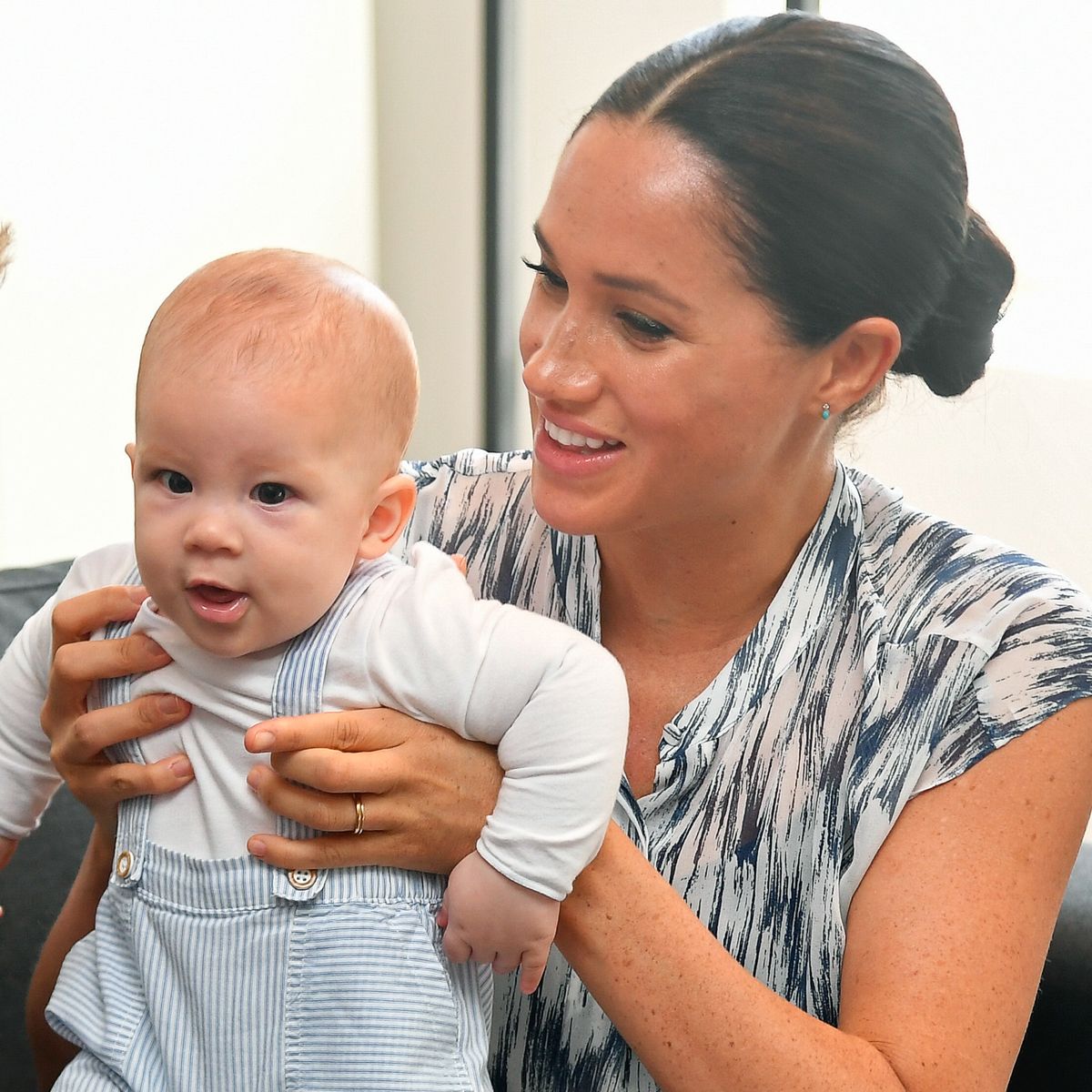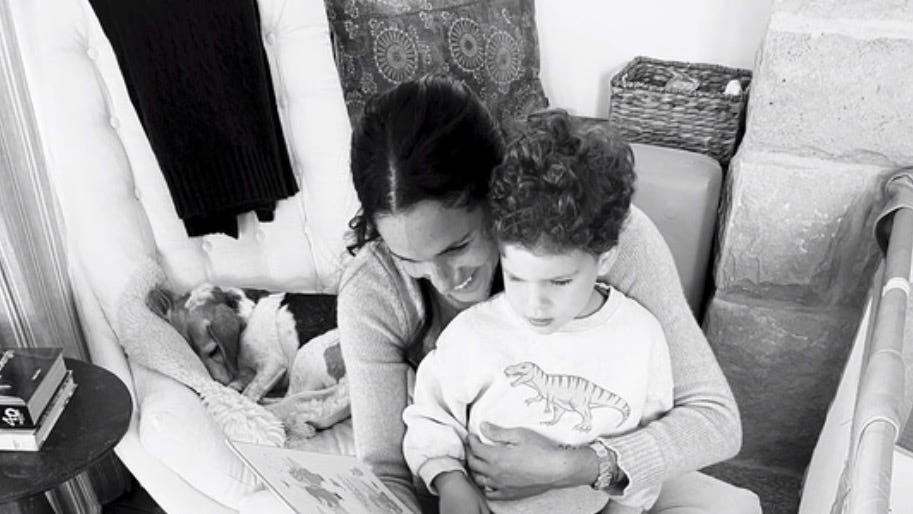
Prins Archie Syndroom Van down : Breaking News
Prince Archie does not have Down syndrome. There is no evidence to support this claim.
Prins Archie Syndroom Van down is a topic of interest to many, especially given the royal family’s high profile. Down syndrome is a genetic condition caused by the presence of an extra chromosome 21, resulting in cognitive impairment and physical growth delays.
The syndrome is named after Dr. John Langdon Down, who first characterized the condition in 1862. In recent years, there has been increased awareness and understanding of Down syndrome, leading to improved support and opportunities for individuals with the condition. Despite the misconceptions and stereotypes that still exist, many people with Down syndrome lead fulfilling lives and make valuable contributions to society. We will explore the facts surrounding Prins Archie Syndroom Van down, dispel any misinformation, and shed light on the realities of living with Down syndrome.

Credit: www.treeofhope.org.uk
Understanding Prins Archie Syndrome
Discovering the unique traits of Prince Archie Syndrome sheds light on the complexities of Down syndrome. Prince Archie Syndroom Van down represents a journey of acceptance and understanding in embracing diversity.
Introduction To Prins Archie Syndrome
Prins Archie Syndrome, also known as Down Syndrome, is a genetic disorder caused by the presence of an extra chromosome, resulting in developmental delays and intellectual disabilities. This condition is named after Prins Archie, a member of the British royal family, who has been rumored to have Down Syndrome. While there is no confirmed evidence to support this claim, it has sparked conversations and increased awareness about this syndrome.
Signs And Symptoms Of Down Syndrome
Down Syndrome can be identified by various physical and developmental characteristics. It is important to note that not all individuals with Down Syndrome exhibit the same signs and symptoms, and the severity may vary from person to person. Here are some common indications:
- Distinct Facial Features: People with Down Syndrome often have a flat facial profile, upward-slanting eyes, a small nose, and a protruding tongue.
- Developmental Delays: Children with Down Syndrome may have delayed motor skills, speech and language development, and cognitive abilities.
- Intellectual Disabilities: Individuals with Down Syndrome typically experience mild to moderate intellectual disabilities, affecting their learning, problem-solving, and decision-making abilities.
- Low Muscle Tone: Hypotonia, or low muscle tone, is a common characteristic of Down Syndrome, which can affect physical movements and coordination.
- Health Issues: People with Down Syndrome may have an increased risk of certain health conditions, such as heart defects, hearing loss, thyroid problems, and respiratory issues.
It’s important to remember that individuals with Down Syndrome have unique strengths and abilities, and with proper support and resources, they can lead fulfilling and independent lives. Early intervention programs, specialized education, and inclusive communities play a crucial role in nurturing their development and helping them reach their full potential.

Credit: www.townandcountrymag.com
Complications And Challenges
Individuals with Prins Archie Syndroom Van Down may face various complications and challenges that require proper management and support. These complications can range from serious health issues to specific conditions that need specialized care and attention.
Serious Complications Of Down Syndrome
Prins Archie Syndroom Van Down is associated with a range of serious complications, including heart defects, blood disorders such as leukemia, and immune system problems. Nearly 50% of babies with Down syndrome are born with heart defects, often requiring surgical intervention to address these issues. Managing these complex health conditions is crucial for individuals with Prins Archie Syndroom Van Down to lead healthy and fulfilling lives.
Managing Eye Conditions In Down Syndrome
Eye conditions are also a significant concern for individuals with Prins Archie Syndroom Van Down. One common condition is a dermoid, which is a skin growth on the cornea present at birth. If left untreated, large dermoids can lead to discomfort, irritation, and potential vision loss. Proper management and regular eye care are essential to prevent long-term complications and maintain optimal eye health for individuals with Prins Archie Syndroom Van Down.
A Look Into Prince Archie’s Life
Take a glimpse into the life of Prince Archie and learn more about Prins Archie Syndroom Van down. Discover the unique challenges and joys that come with Down syndrome.
Parentage Of Prince Archie Of Sussex
Prince Archie Harrison Mountbatten-Windsor is the son of Prince Harry, Duke of Sussex and Meghan, Duchess of Sussex. He was born on May 6, 2019, at the Portland Hospital in London.
Addressing Rumors Regarding Down Syndrome
Despite baseless rumors and unfounded claims, there is no evidence to suggest that Prince Archie has Down syndrome. Such false information can be harmful and should be disregarded. The royal family has not made any official statement regarding this matter.
Credit: www.quora.com
Public Perception And Media Coverage
Public perception and media coverage play a significant role in shaping our understanding of individuals with Down syndrome, including Prince Archie.
Despite the lack of evidence, claims have circulated suggesting that Prince Archie may have Down syndrome. However, this speculation has been debunked by fact-checking organizations such as Snopes.com.
This unfounded rumor not only highlights the importance of responsible reporting but also emphasizes the need to dispel misconceptions about individuals with Down syndrome. It is crucial to approach these topics with sensitivity and accuracy to avoid perpetuating stigmas and stereotypes.
Prince Archie’s existence has undoubtedly Made An Impact On Society. By being a visible member of the royal family who happens to have Down syndrome, he challenges societal norms and brings attention to the capabilities and achievements of individuals with disabilities.
The media coverage surrounding Prince Archie should focus on celebrating his accomplishments and advocating for inclusivity, rather than perpetuating baseless rumors. Promoting positive stories and showcasing the valuable contributions of individuals with Down syndrome can help reshape public perceptions and foster a more inclusive society.
Progress And Support
Prins Archie Syndroom Van down has been on a remarkable journey, showcasing progress and resilience in navigating life with Down Syndrome. Let’s delve into Archie’s Journey and the extensive support systems available for individuals with Down Syndrome.
Archie’s Journey And Progress With Down Syndrome
- Archie, with Down Syndrome, defies stereotypes and embraces growth.
- His journey highlights positivity and determination in facing challenges.
- Progress in Archie’s development inspires hope and advocates awareness.
Support Systems For Individuals With Down Syndrome
- Medical Assistance: Comprehensive healthcare tailored to specific needs.
- Educational Programs: Accessible and inclusive learning environments.
- Therapeutic Services: Physical, speech, and occupational therapies for holistic development.
- Community Support: Networks offering guidance, understanding, and acceptance.
Conclusion
It is important to acknowledge and understand the challenges and realities faced by individuals with Down syndrome, such as Prince Archie. Despite these challenges, it is heartening to see that he has been embraced by his family and given the opportunity to live a fulfilling life.
By raising awareness and promoting inclusivity, we can create a society that celebrates the diversity and abilities of all individuals, regardless of their genetic condition. Let us continue to support and advocate for those with Down syndrome and work towards a more inclusive and accepting world for everyone.




